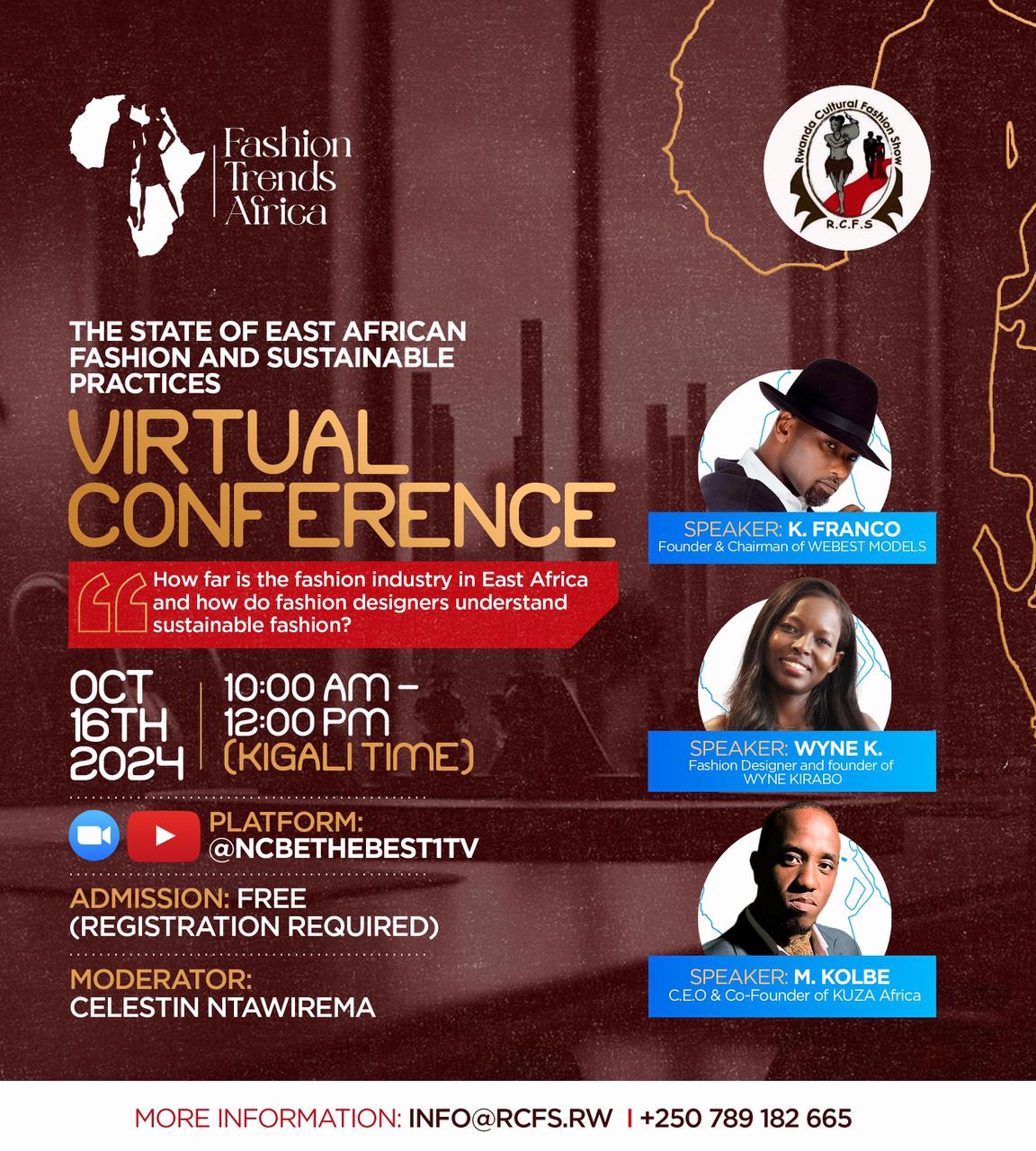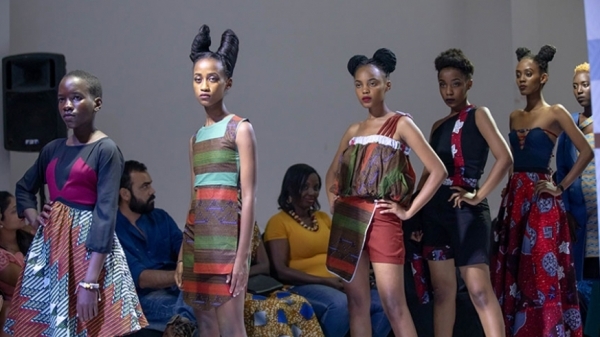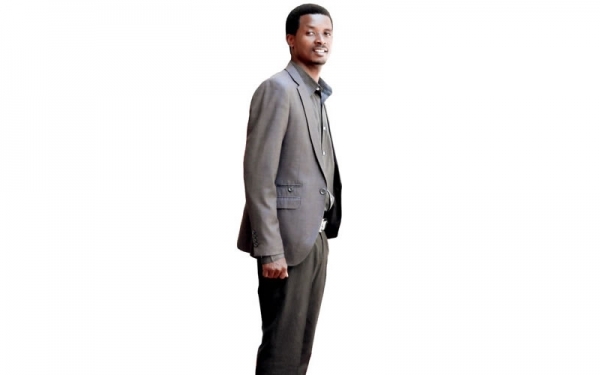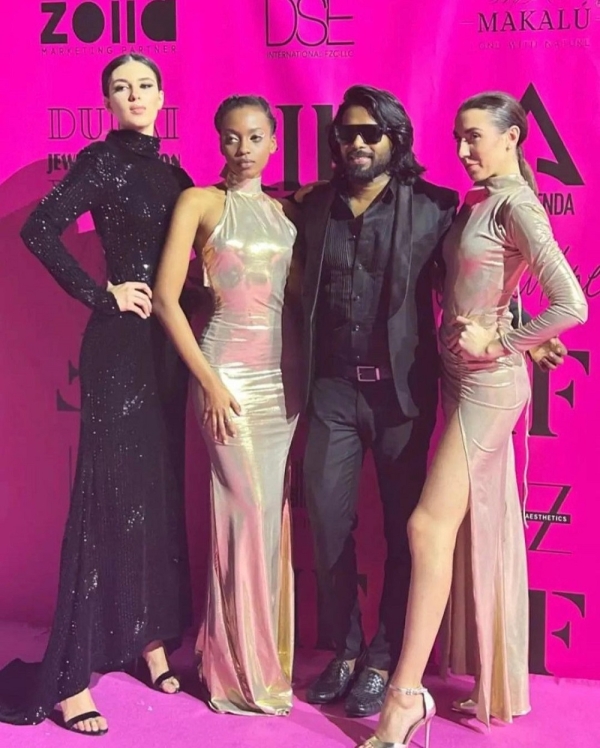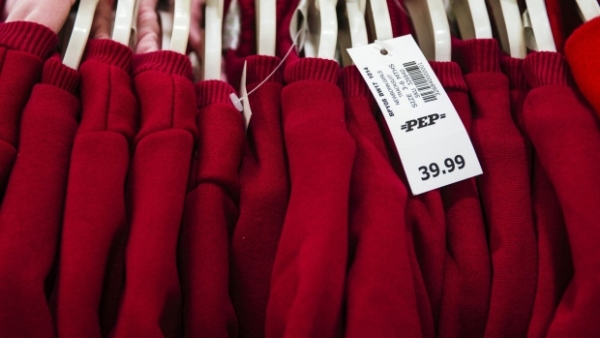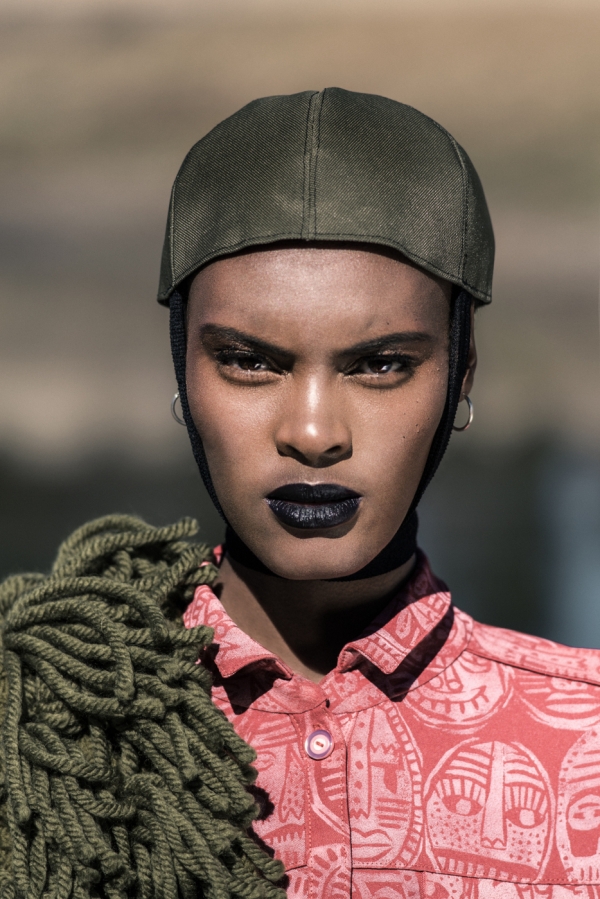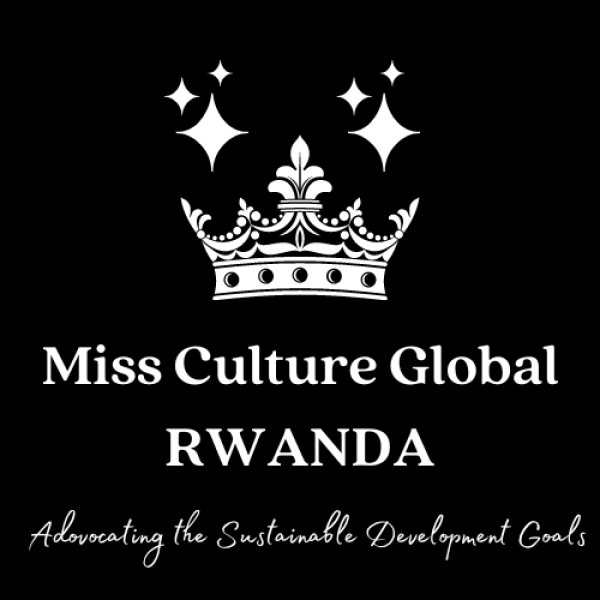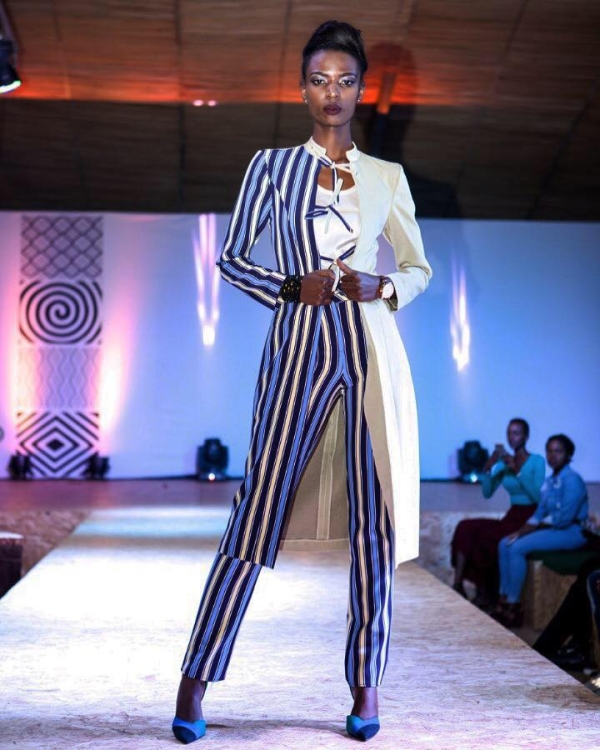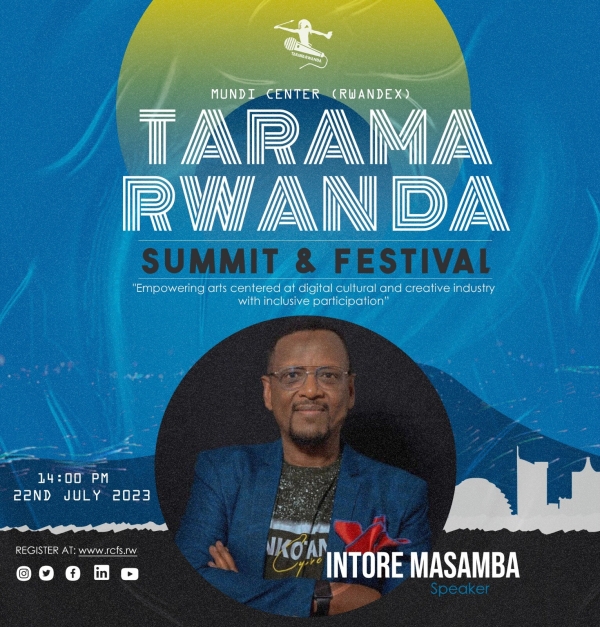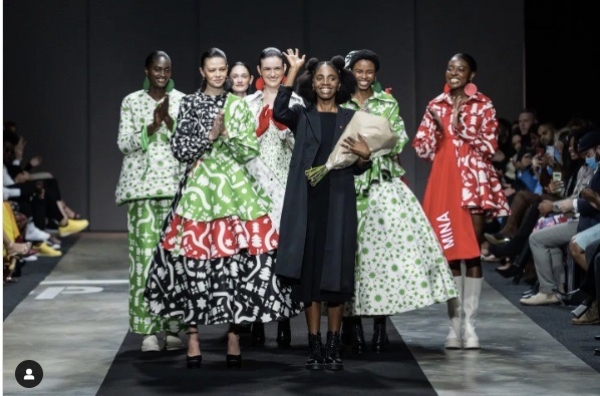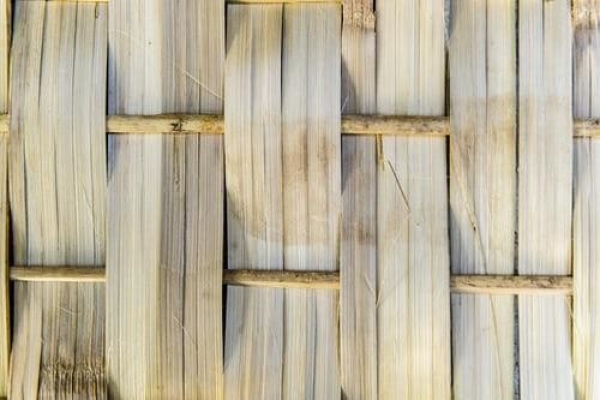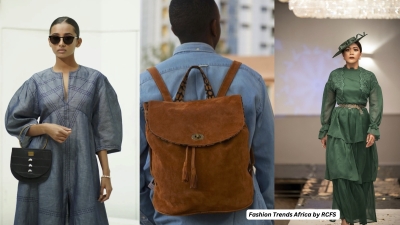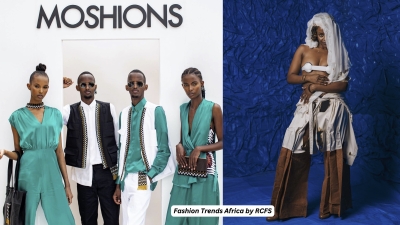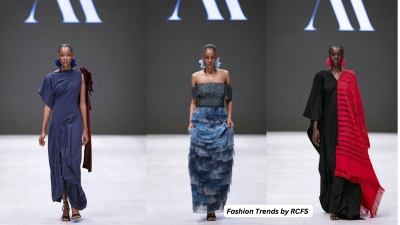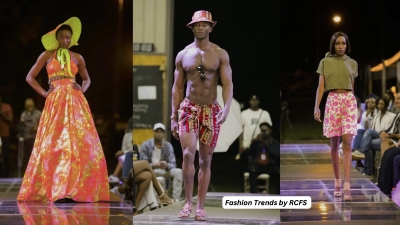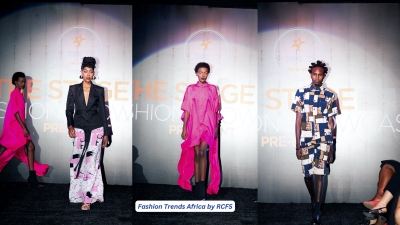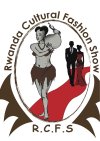
RCFS
Models catwalking at a past fashion show. The webinar will discuss how to push the industry in Africa forward.
Rwanda Cultural Fashion Show (RCFS) will on December 18, hold a virtual conference during which players in the fashion industry will discuss the current state of the African fashion industry.
Dubbed “The Future of Fashion Industry in Africa”, the webinar will bring together different stakeholders of the fashion industry to share experiences and discuss how private and public institutions can support Africa’s growing fashion industry.
The webinar will include discussions which will be in the form of a series of a thought-provoking panel. Key speakers of the event will include renowned fashion designers, fashion promoters, experts in textiles and fabric dyeing, fashion school teachers and some government representatives.
Celestin Ntawirema, the brains behind RCFS and organiser of the webinar told The New Times that participants in this webinar will share experiences on how to establish a successful fashion concept business, discuss challenges facing the industry and propose some solutions.
“Though Covid-19 halted most activities in the industry, we thought of creating a platform that will bring players in the fashion industry to share experiences and best practices so we can learn from each other how best we can push our fashion industry to another level. We also want to see how designers can go global through African networks,” Ntawirema said.
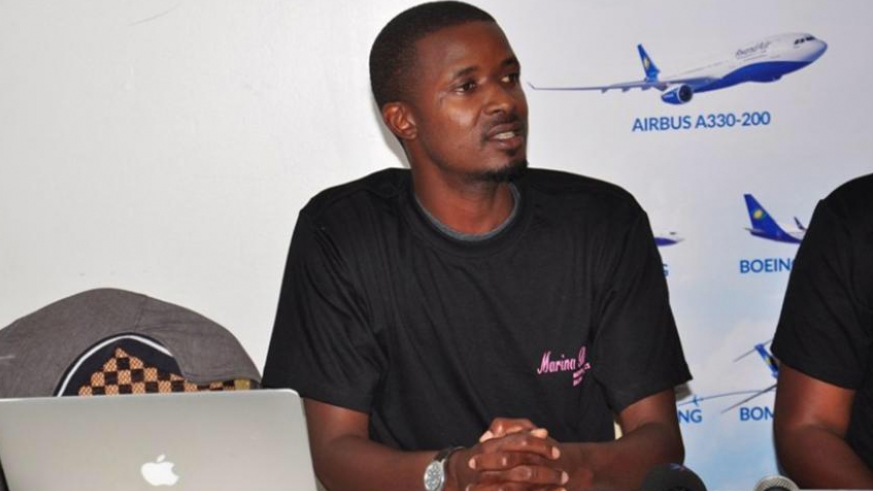 Celestin Ntawirema, the CEO of Rwanda Cultural Fashion Show. / Courtesy.
Celestin Ntawirema, the CEO of Rwanda Cultural Fashion Show. / Courtesy.
The African fashion sector is already impressing in the global market, something that industry players hail as a motivation despite the challenges they have faced in the journey.
Ntawirema, who has been promoting fashion for over the past eight years said that, from his experience, many brands from all over the continent had established themselves among the best globally and are now selling big on the international fashion markets compared to Western fashion despite having few fashion schools that can drive the industry to greater heights.
He, however, lamented that investors are still reluctant to put their money in fashion-related projects because protection of fashion copyrights and fashion innovations is still low due to the gap in fashion literacy.
The webinar, he said, will be an opportunity for fashion players to show both the public and private sectors the potential that fashion has at its disposal so as to attract their investment and, on the other hand, call for support from the governments to create a conducive environment for fashion to flourish and become a sector which can contribute to the national economic development.
 A model shows up before the audience during a past event. / File.
A model shows up before the audience during a past event. / File.
Some of the speakers expected for the webinar include Ruth Jackob, senior lecturer in fashion marketing Eastern London, Karen Uwera, the President of Rwanda Designers Association, John Bunyeshuri, the CEO and Founder of Kigali Fashion Week and Kenyan fashion guru Vinn Clizz, the Managing Director of Vinn Clizz among others.
Challenges
Though Rwanda’s fashion industry is being contextualized with the ‘Made in Rwanda’ policy but Ntawirema said that it’s a shame that One of the biggest challenges we have is that we have no fashion school that can prepare and raise future designers, models, or fashion promoters by profession.
“This is all down to the fact that Rwanda has no forum bringing together designers, models, promoters and other stakeholders to discuss to the future of this industry. We also need an umbrella or a fashion watchdog for all players in the fashion industry to ensure that the protection of our works is guaranteed,”
Rwanda may have local designers who are becoming successful but under hard conditions which the webinar is also looking forward to tackling.
The webinar outcomes are expected to respond to questions raised around African fashion industry from “who can design?”, “who can sell locally-made clothes”, and “who promotes fashion?” or even “who can basically support fashion sector?”
“We hope the webinar will find share responses to these questions together with the speakers. We also value new ideas from the public from which the future styling and fashion business in Africa can rely on,” he added.
This email address is being protected from spambots. You need JavaScript enabled to view it.
Celestin Best Ntawirema is the CEO of Rwanda Culture Fashion Show and founder of film house IRIS-Pro 1000 Hills Ltd. His goal is to support artistry and culture through dance, music, fashion and film. He spoke to Society Magazine’s Stephen Kalimba about his sense of style.
How would you describe your style?
I am fun and fashionable; not too many colours. I want my outfits to match. With a job like mine, you have to look good. I like suits too; my friends ask me questions when they do not find me wearing one.
Do you have a designer?
I work with many designers, so I try out some of the stuff they do. I also have tailors who make suits and they are very good, like Joseline Umutoni near Sky Hotel Remera.
What’s your take on white shoes? Some people wear them with suits?
They are not for everybody or every day, if you’re going to the stage or on screen, maybe.But elsewhere? Not really. Even our roads are too dusty for them.
Second hand vs. new clothes?
I don’t go for second hand clothes. I used to but now, for the sake of my credibility I don’t.
What are your kind of accessories?
I like watches, especially sports and metal watches like Caico and Shades. Watches are good for time saving, you might have a phone but when you’re seated on a moto or in a crowded place, all you need is to look at your watch.
Who influenced your venture into fashion?
My dad. He liked to wear Kitenge and African jewellery like that of the Maasai.
What should people avoid in fashion?
There are clothes that come from China that look nice when you first see them but fade in no time.
Any fashion advice?
When you’re smart you can relax and have a peace of mind, especially around people. Keep your clothes in good condition;do not over wash or iron them. Also, do not leave them with someone else to take care of, they might mess them up instead.
This email address is being protected from spambots. You need JavaScript enabled to view it.
Munyana Peace Kenson na Mwiza Amelie proved their skill and talent in modeling during the Fashion Factor season 5’ which took place in Dubai.
These girls headed to Dubai on June 22, 2023, to represent Rwanda in an international fashion event, which brought together fashion artists from all over the world. This event took place on June 24 and 25, 2023, where these ladies showcased the clothes of different fashion designers.
Munyana and Mwiza are some of the last six winners of 'Rwanda Top Model', a competition that took place on December 28, 2022, which had more than 150 candidates selected by the Jury until six were found.
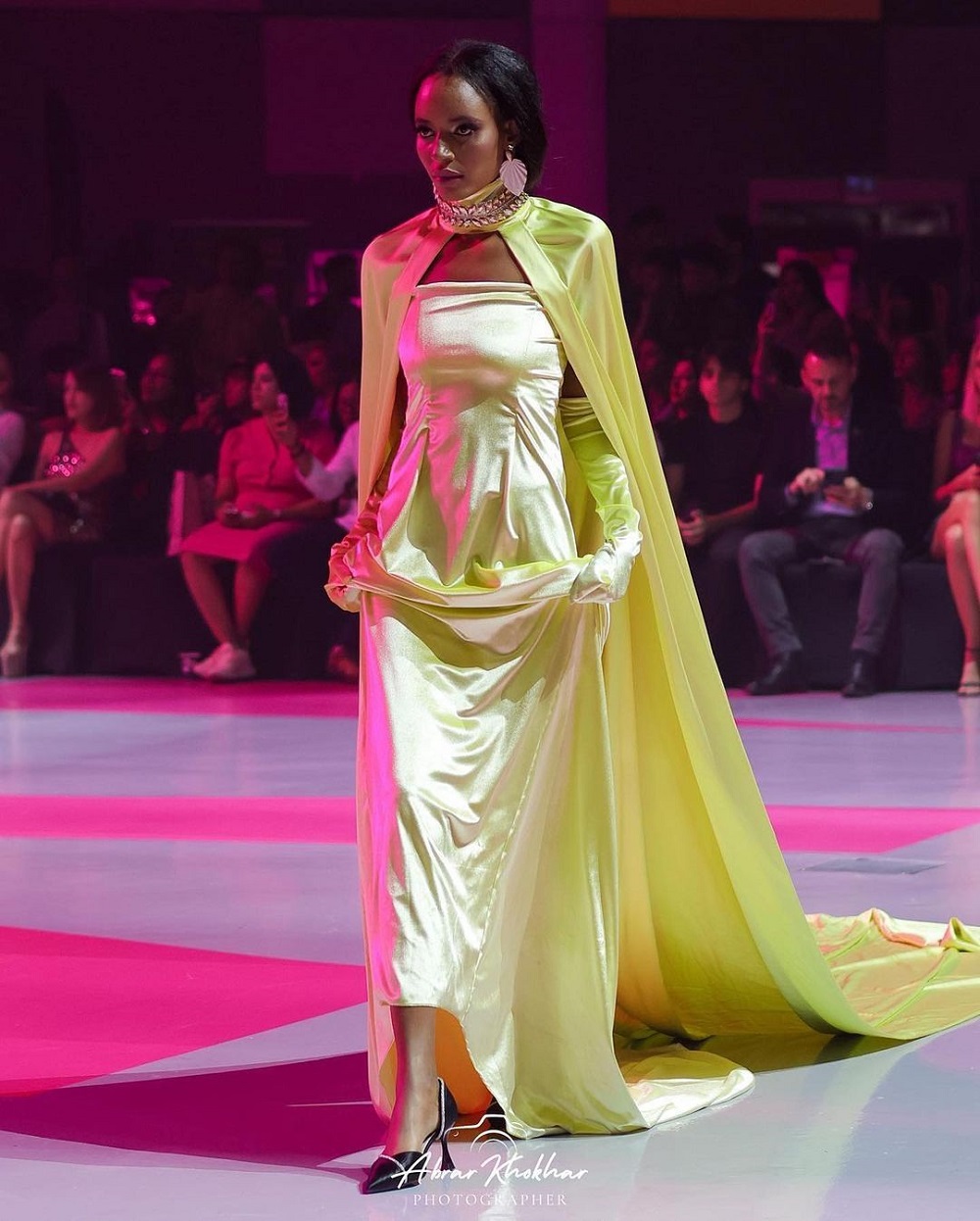 Munyana and Mwiza are some of the last six winners of 'Rwanda Top Model', a competition that took place on December 28, 2022
Munyana and Mwiza are some of the last six winners of 'Rwanda Top Model', a competition that took place on December 28, 2022
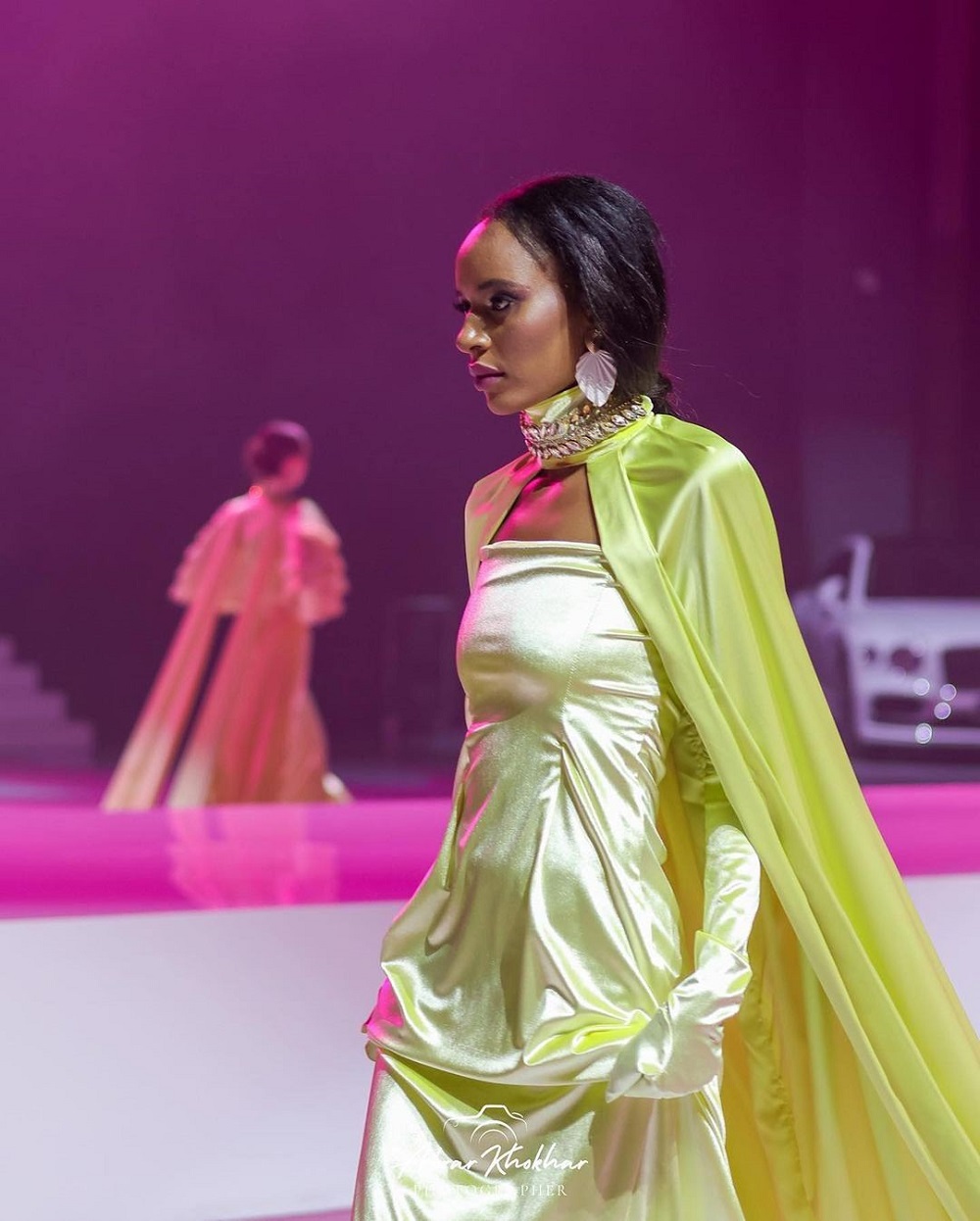 Factor season 5’ which took place in Dubai.
Factor season 5’ which took place in Dubai.
Pepkor Holdings Ltd. replaced the head of its Ackermans unit after Africa’s largest clothing retailer posted a drop in first-half earnings as it failed to get the right summer fashion mix.
The discount retailer, which started 100 years ago in rural South Africa and now has 5,929 stores in almost a dozen countries, has brought in “some new eyes from outside” to run the division as it also reconsiders package sizes of items such as T-shirts and shorts, Pieter Erasmus, chief executive officer of Cape Town-based Pepkor, said in an interview Tuesday.
Ackermans is facing intensifying competition from Shoprite Holdings Ltd., Africa’s largest grocer, which recently opened specialist clothing and baby stores — categories in which Pepkor’s flagship Pep and Ackermans outlets are active.
“There are some very good competitors out there,” Erasmus said, citing Pick n Pay Stores Ltd.’s clothing unit and Jet, which has better access to funds since it was purchased by The Foschini Group Ltd. The new Ackermans CEO was previously the chief operating officer at Pick n Pay, Erasmus said, without providing the person’s name.
Other changes at Ackermans include new appointments to its women’s clothing team, “because that’s a key market share opportunity for us,” Erasmus said. An improved performance is expected by the end of August and into the next summer, he said.
Earlier on Tuesday, Pepkor reported an 11% drop in net income to 2.98 billion rand ($151 million) in the six months through March. While revenue improved, inventory levels increased 12% as sales slowed at Pep and Ackermans, the company said in a statement.
The stock lost as much as 8.6% and was down 6.9% as of 11:50 a.m. in Johannesburg, its biggest intraday drop since Sept. 13. That brings its decline this year to 29% and makes it the worst performer on the eight-member FTSE/JSE Retailers Index.
Source: BNN Bloomberg
ANSWER. A designer’s earnings are typically based on the number of years in the business, experience, expertise, region or location, size of the company, and job description. Because each person’s background and objectives are unique to them, we suggest to do your own research and due diligence. For example, compare salaries of local similar job descriptions and talk to those in the industry. Not all pay is equal and women, unfortunately, are paid less than their male counterpart.
The following are only averages within a range of salaries based on these sources. There are other sources of which data could be different.
According to the Economic Research Institute, the average annual pay for a fashion designer:
- London, £61,145
- France, €57,920
- Luxembourg, €78,867
- Italy, €52,985
- Germany, €66,716
- Hong Kong, HKD 446,494
- Shanghai, CNY 206,230
- Tokyo, JPY 9,732,525
According to PayScale, the average yearly salary for a fashion designer:
- South Africa, R168,519
- Spain, €33,424
- Vancouver, BC, Canada C$61,169
- Toronto, Ontario, Canada C$51,175
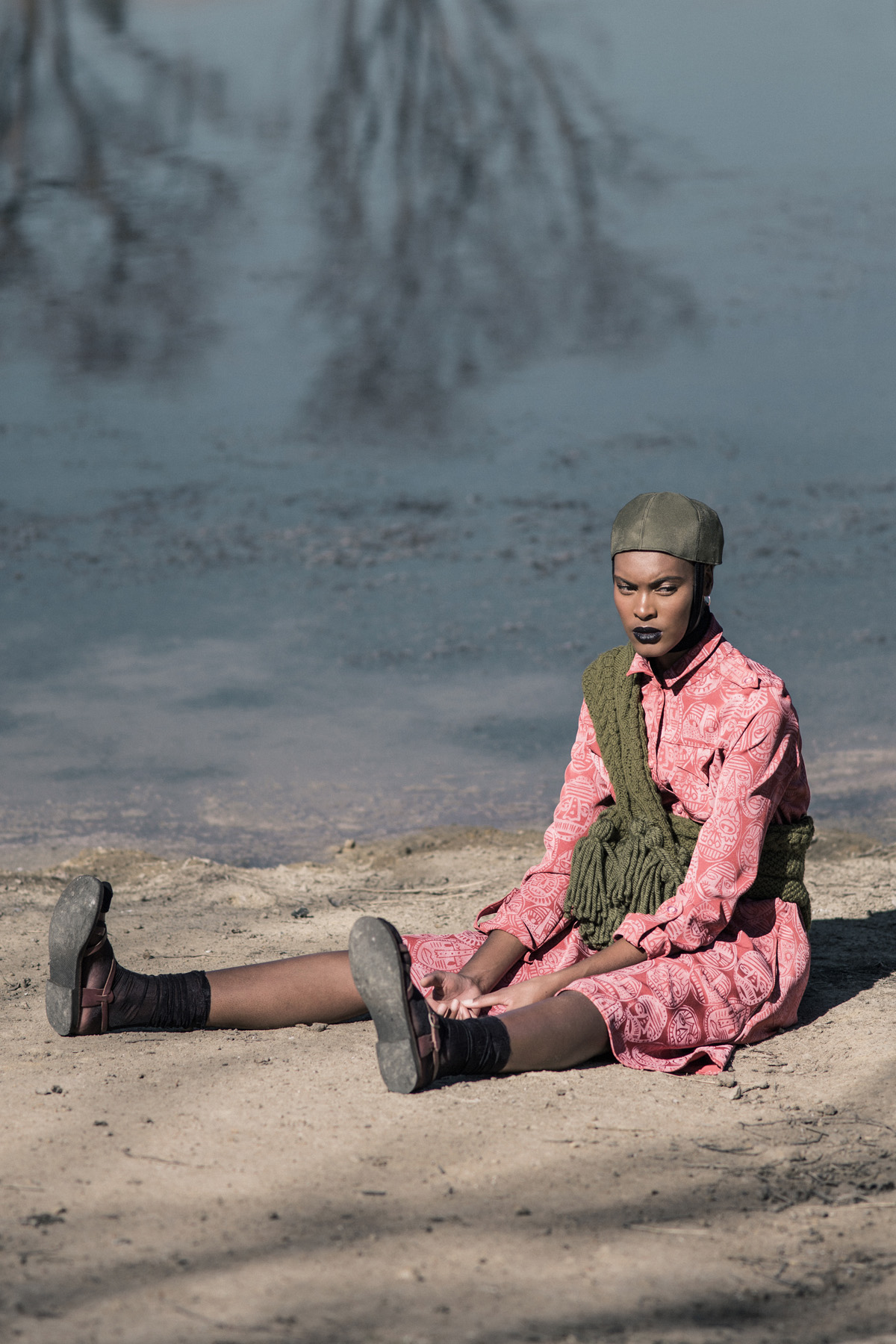
Sheila-Madge Bakker, designer | Courtesy of Sheila-Madge Bakker
Images: Pretoria, South Africa-based designer Sheila Madge Bakker, integrates her South African roots and culture with a dynamic execution of design with purpose, skill, environmental sensitivity, collaboration, and most importantly a cultural significance. Read her timeless story: The Tomorrow People, African Fashion Designers.
Source: Fashion Intelligence
The Rwanda Cultural Fashion Show in partnership with MissCulture Global, will host Miss Culture Global - Rwanda 2023-2025.
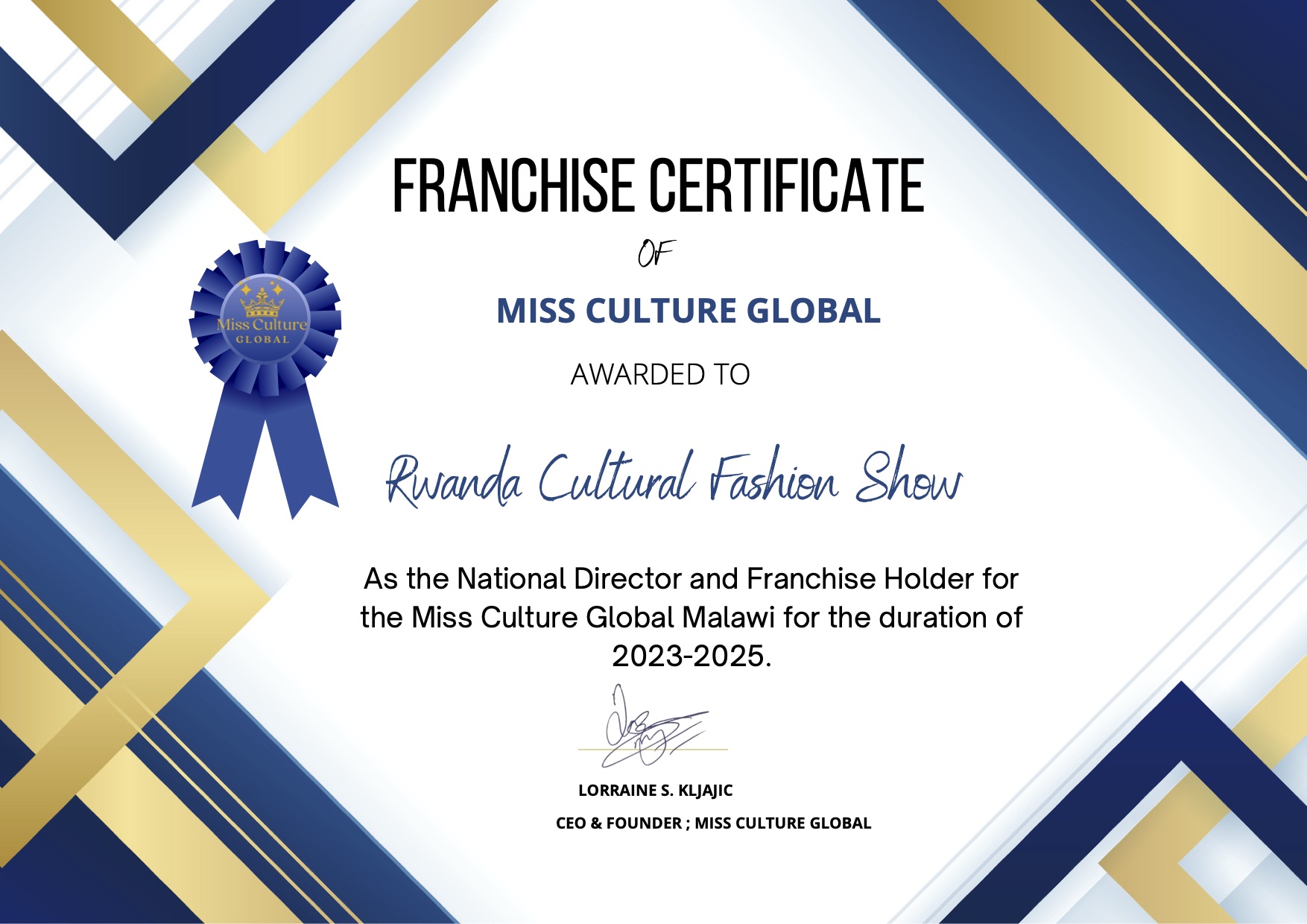
Rwanda Cultural Fashion Show awarded to host Miss Culture Global Rwanda 2023-2025
More information about this partnership and our first Edition #MissCultureGlobalRwanda is to be announced soon.....
" From different cultures and find common ground in pursuit of transformation and change through the advocacy of Sustainable Development Goals" by Miss Culture Global and #LorraineLoshaqKljajić
By RCFS's media
“I don’t design clothes, I design dreams.” – Ralph Lauren
Are you really passionate about making your career in Fashion Designing? An artistic attitude and keeping tab of fashion trends are a few traits needed to be successful in this field.
Check it out!
- Are you creative?
- Do you have passion for innovation?
- Do you enjoy being a fashion stylist?
Types of Fashion Designer
- Footwear Designer – Specialized designer that designs footwear like shoes, sandals, boots. There is a good market for designers who can invent designs, and use the modern technologies like light weight material.
- Accessory Designer –The designers who invent new and attractive accessory designs like fancy handbags, belts, suitcases, scarves, hays, eye wear and hosiery items.
- Costume Designer – Costume Designers, design and research costumes for the artists involved in performing arts like television artists, motion picture artists, stage artists to name a few.
- Dress or Clothing Designer –The designers design, new creative designs for men, women and children apparels for different occasions.
Role of a Fashion Designer
- A fashion designer needs to study current fashion trend, consumer requirement and market trends. On the basis of this research work they may be asked to produce reports predicting the future fashion trends.
- The fashion designers as a team have to produce designs in the form of sketches and to create prototypes by using inexpensive material or fabric.
- Fashion designers have to prepare sketches of their design via, Computer aided design (CAD) software which gives them a virtual environment to work.
- Fashion designers visit trade shows, manufacturers, market, etc. to get the right fabric for their design.
- Fashion Designers displays created samples in front of editors, creative directors and the people of fashion world by fashion shows and model ramp walks.
- Fashion designers are responsible for the final check of the produced product before the launch.
- You should believe that you can get an edge over the other fashion designers with your go getter attitude.
Skills Required to be a Fashion Designer
- Creativity – A fashion designer should use unique ideas to create designs with the use of materials and colors.
- Technical Skills – A fashion designer should possess the knowledge about the textiles, process, fabrics sewing and pattern making.
- Computer Knowledge – A fashion designer should be a whiz at the computer. Knowledge of Computer Aided Design software is mandatory.
- Artistic Skill – A fashion designer should be able to produce the designs in the form of sketch with the detailed work.
- Detail Oriented – A fashion designer should have an eye for detail, so as to produce the sketch with the detailing which includes designing, coloring or pattern making.
- Decision Making – A fashion designer need to take decision regarding design materials to give ensemble a unique look.
- Team Player – A fashion designer should be a team player.
Pros & Cons
Pros- You can work as a freelancer or be self employed or a salaried employee.
- You can earn good, after gaining some experience.
- Invention of new designs and learning makes the job interesting.
- A salaried job can give you financial stability.
- You should be flexible enough to relocate.
- Beginner may face some problem if they are self employed or a freelancer.
- Strict deadlines and work pressure.
- Freelance fashion designers’ work is contractual and need to work for longer hours to meet deadline.
- This job may include traveling.
Some Job Titles
- Fashion Designer
- Creative Designer
- Creative Director
- Sewers and Tailors
- Pattern Maker
- Technical Designer
- Merchandiser
Where to study
The Rwagihuta singer is well renown traditional artist and through traditional music, Masamba Intore has promoted Rwandan culture globally. Masamba is also known to promote made-in Rwanda through his fashion styles.

Intore Masamba often wears Made in Rwanda styles
Cultural music veteran Masamba is among the speakers at the Tarama Rwanda Summit and Festivals scheduled on 22nd July 2023, in Kigali at Mundi Center Through his music career, Masamba has scooped multiple awards including one from South Africa and he also plans to release a book talking about his life in the military and music arena. Massamba told KT Press in 2019

Many people say that Masamaba is very fashionable
The ex-soldier turned-artist is currently laying strategies to upgrade the Rwandan cultural troupe to represent Rwanda on the global scene through traditional music and dance.
In 2019, he was appointed as the technical director of the Rwandan cultural troupe Urukerereza. The job offered by the Ministry of Culture and Sports (MINISPOC) changed to the Ministry of Youth and Culture (MYCULTURE). During interviews with KT Press, Masamba said that he wanted to put in action from his family background to direct a Rwandan cultural troupe with all his experiences learnt from his father Athanase Sentore.
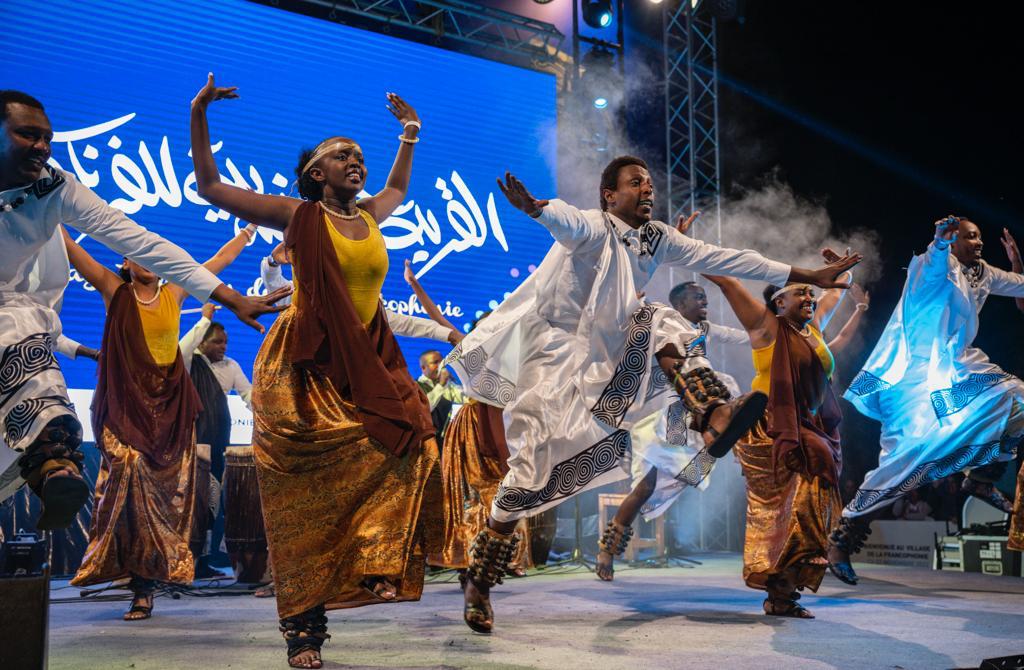
Masamba is the man behind all good organization of the Rwandan cultural troupe Urukerereza performances
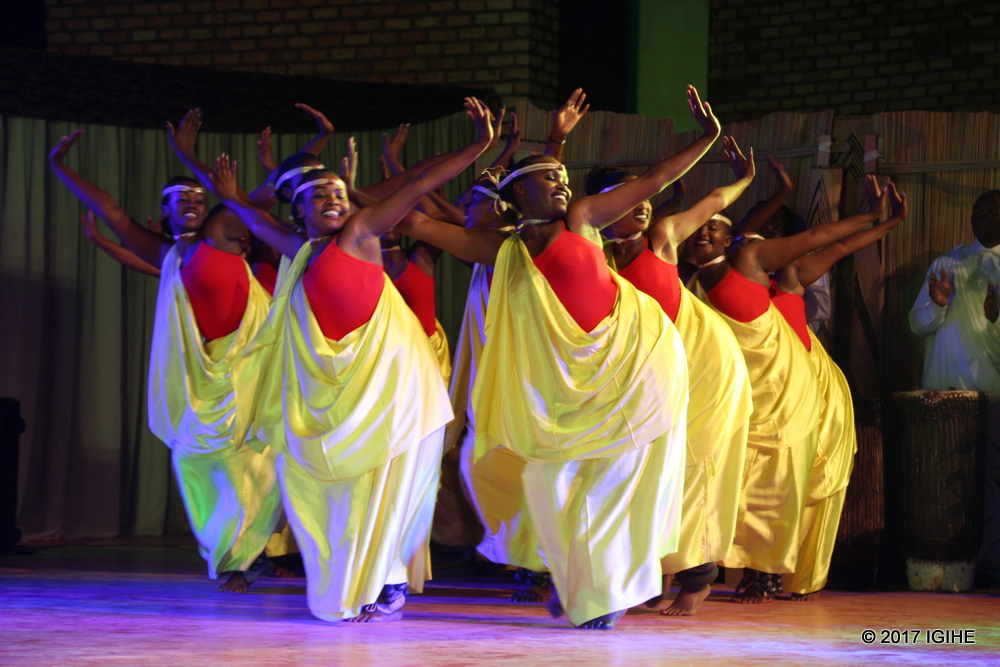
Rwandan cultural troupe Urukerereza performing
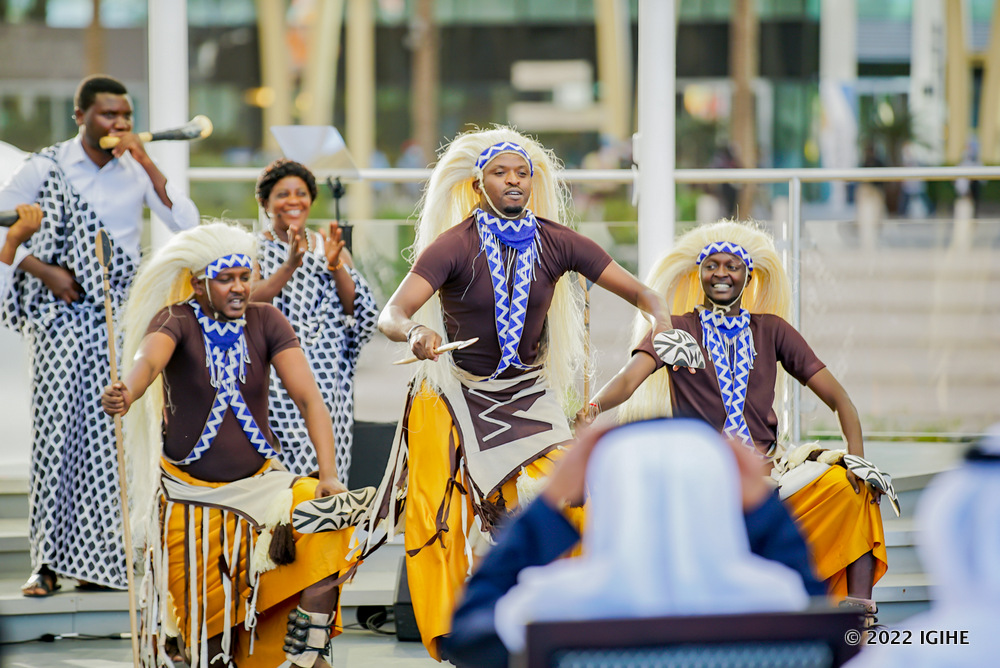
Rwandan cultural troupe Urukerereza performing
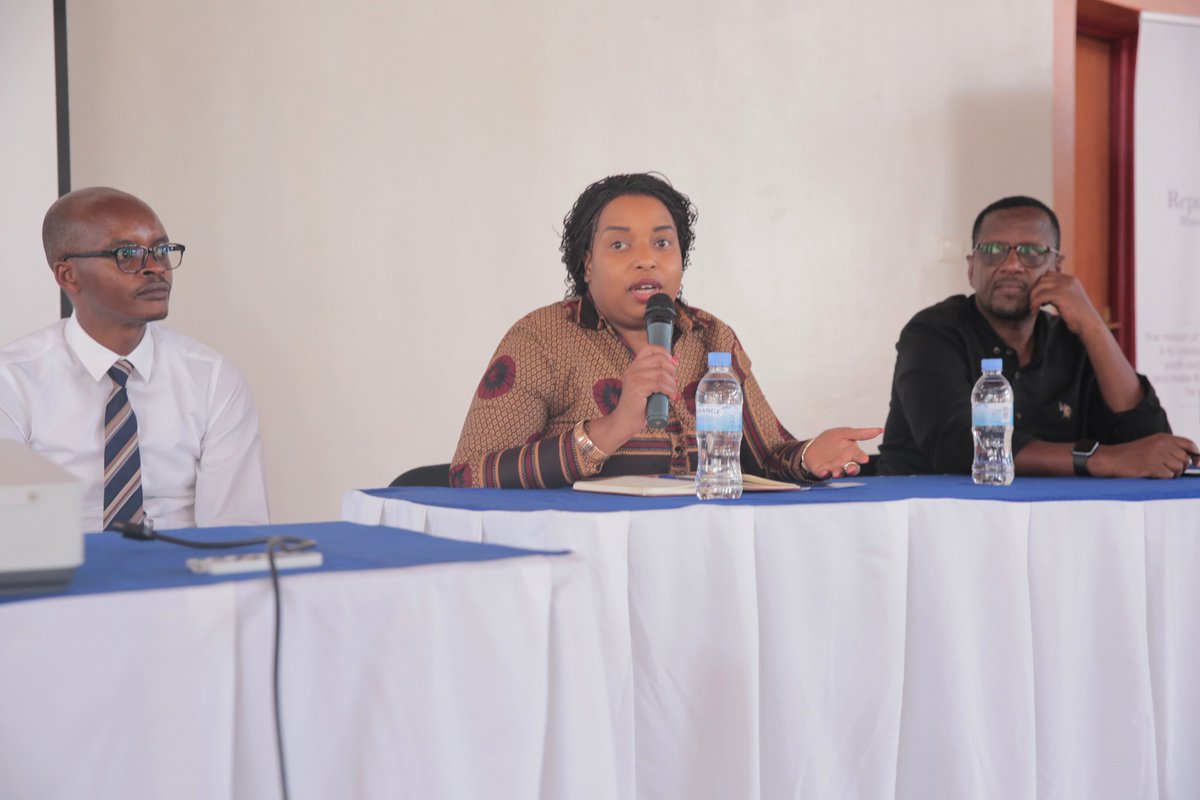
Director of the Rwandan cultural troupe Urukerereza.
“Am now more concentrated on training Rwandan cultural troupe because I want it to elevate from where I found it musically, and I had to pause my projects for a while but am still a music recording artist,” Masamba told KT Press.
He added that the Rwandan cultural troupe represents the country’s culture and it needs to be perfect from all angles. Masamba’s music runs through blood as his late father Athanase Sentore, a composer, musician, and pioneer in teaching Rwandans in the Diaspora the traditional Kinyarwanda dance. Born in Bujumbura, Burundi, Massamba developed a keen ear for music and rhythm at a tender age.
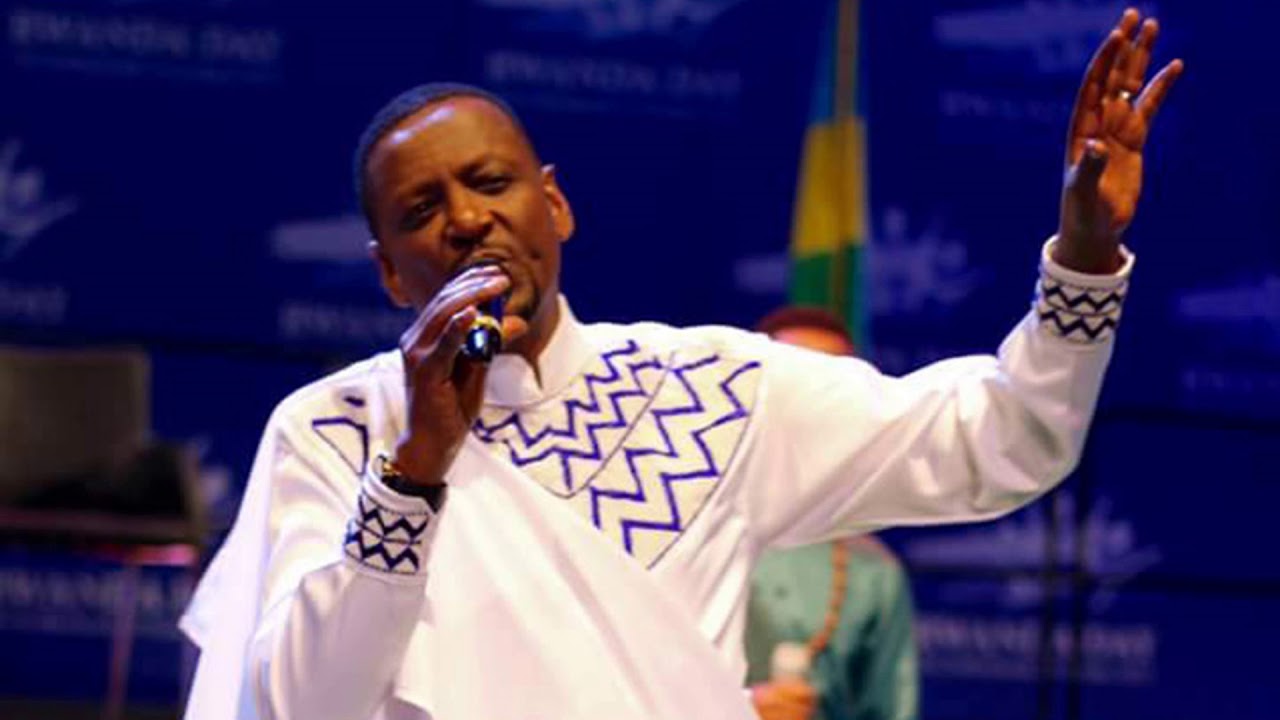
Masamba's family background is related to art and traditional sins, dance, and unique creativity from his father Sentore
Tarama Rwanda, in collaboration with a diverse range of esteemed individuals, institutions, and embassies, is proud to present the Tarama Rwanda Summit and Festival. This event will take place at the Mundi Center ( Rwandex ) from 11 Am to Midnight on the 22nd of July 2023 REGISTRATION. Exciting news, to this year's summit by Tarama Rwanda, participants will interact with very talented and experienced speakers and moderators. This will include the Ambassador DR. Ron Adam of the Embassy of Israel in Rwanda who will be among our VIP guests as well as the moderator.
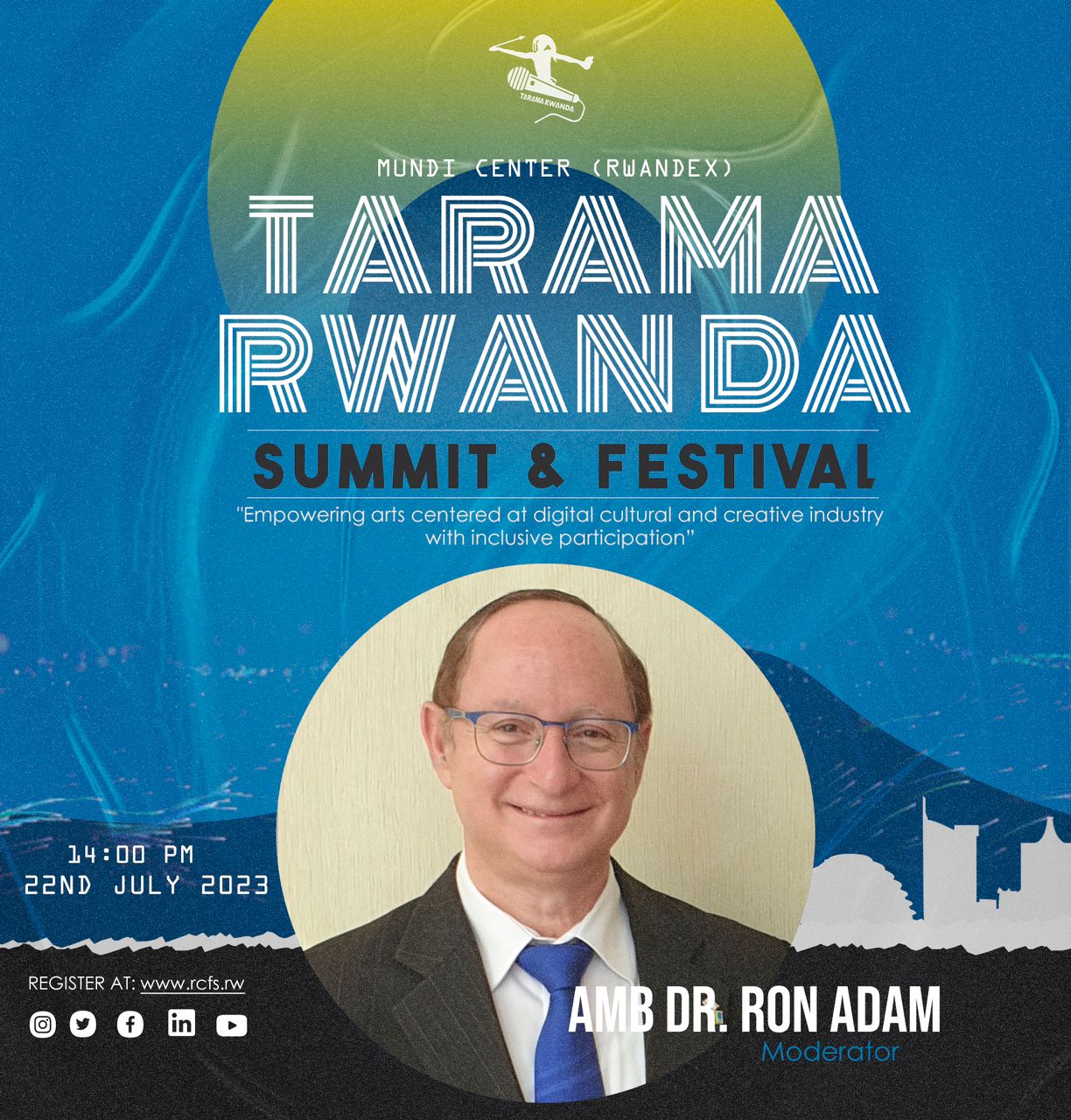
The Ambassador DR. Ron Adam of the Embassy of Israel in Rwanda who will be among our VIP guests as well as the moderator
More to this story coming ......
As African fashion continues to blossom, these are some of the names to keep a close eye on in the months to come
Much of the buzz around African fashion today isn’t accidental. Africa’s design talent has been on the rise, as seen across the continent's staging of various fashion weeks. At the Spring/Summer ‘22 shows for South African Fashion Week, a new talent search had young designers like Mikhile du Plessis and Sanelisiwe Gcabashe showcasing worthy-of-note collections.
Lagos Fashion Week, too, with its talent discovery platform, Green Access, presented a roster of new designers to watch: from Ghana’s Meta Kay to Nigeria’s Oshobor and Pettre Taylor, and South Africa’s SVL Designs. These next-gen labels appear to have distinct philosophies towards the design process.
Whether it is experimenting with textures and prints, reviving traditional crafts and textiles, or operating within ethical techniques like upcycling, these new designers are charting their own path in the industry. While there are names that caught our attention in 2022, others have equally shown promise with off-calendar presentations or modest campaigns. In 2023, here are a handful of the designers we are excited to watch.
Munkus
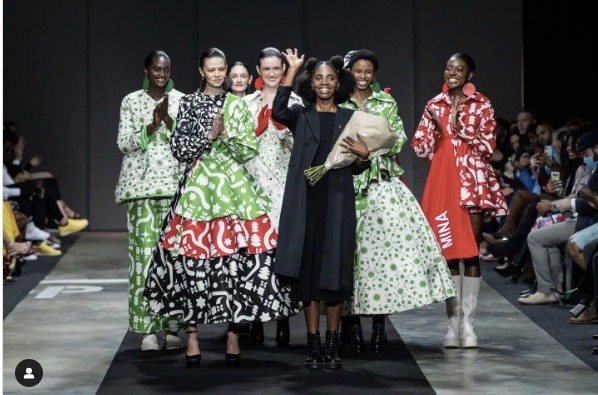
Munkus @safashionweek
Last year, Thando Ntuli’s Munkus won the talent search competition at SA Fashion Week, after entering for the second time. As one of South Africa’s on-the-rise talents, the young designer founded her ready-to-wear label in 2019, inspired by the styling choices of the women in her family - her mother, grandmother, and great grandmother.
This intergenerational mashup has resulted in a whimsical play on vibrant colors, volume, and prints. Her winning collection titled “Sisendleleni” puts this on display, offering layered looks that can be assembled in different ways or worn alone. In the same year she won, the designer dedicated her Autumn/Winter ‘23 collection to her mother.
Along with shifting silhouettes to demonstrate the different roles women play in society, she sent a belted dress on the runway of Lagos Fashion Week bearing a bold print of her mother’s face. At the core of the Munkus brand is a storytelling informed by Ntuli's South African heritage, mixing contemporary approaches to define the adventurous woman.Vicnate
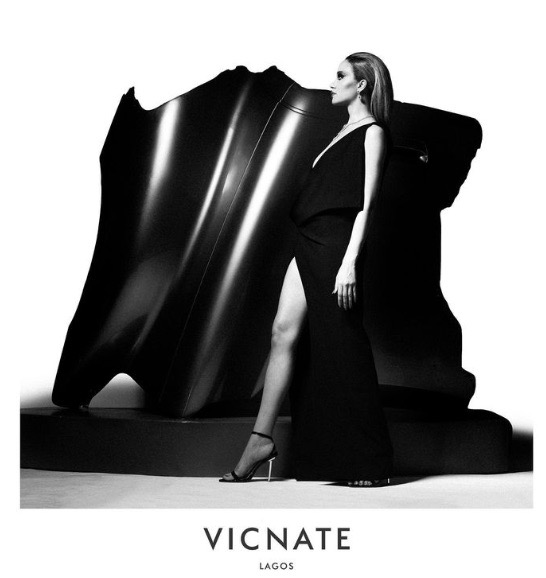
Victor Anate was still a teenager when he founded Vicnate, his womenswear brand based in Lagos. In no time, his sentimental attachment towards dressing women charmed a knitted circle of Nigerian stylists, fashion editors and commentators.
His early emphasis on butterfly bows, balloon dresses, pussy bows, slimming skirts, and cocktail dresses indicated the young designer was taking notes from classical Parisian style, and the forebearers that defined that era: Cristobal Balenciaga, Christian Dior, Elsa Schiaparelli.
And with each season’s collection, he updates his proposal around romance and sex, courting the clientele who dare to wear his designs. While his industry peers place femininity in a safer tunnel vision, Anate has his brand perched on riskier horizons.
Archetypal suiting and formalwear is broken down - think Yves Saint Laurent’s Le Smoking - and built up into something slightly transgressive. In some instances, it’s just carnal, high-stakes glamour. One can’t help but think what the brand will look like for menswear, if it ever decides to go there.
Boyedoe
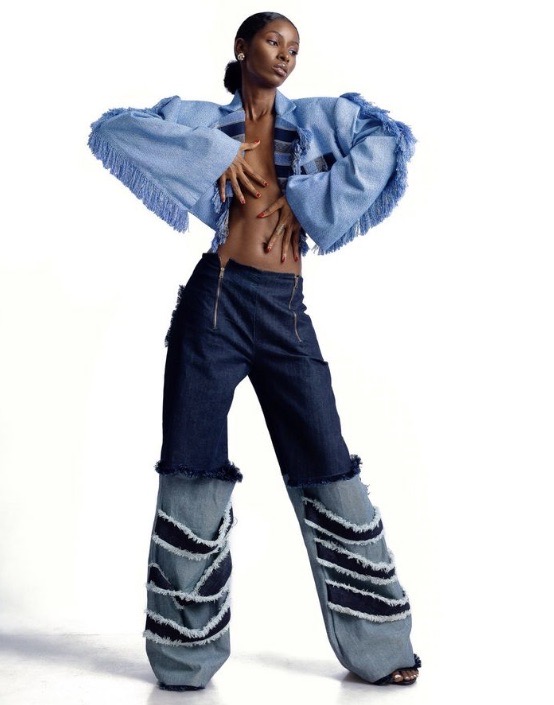
Model: @_modelmaya
With Ghana’s environmental crisis resulting from garment landfills, the country has birthed an eco-conscious mindset towards designing. One is emerging brand Boyedoe. Established in 2020, its creative director David Boye-Doe has an intentional stance against garment waste. Denim as an integral fabric in the brand’s DNA, sourced from discarded stock and repurposed into practical wear.
The Boyedoe aesthetic is at the intersection of sustainability, modern construction, and Afrocentric chic. The brand’s latest SS’23 collection – with a recurring theme in denim – offers utilitarian pieces, bold colors, and lush textures.
Graduating in 2019 from Ghana’s Joyce Ababio College of Creative Design as “Most Outstanding Student” and “Most Creative Student,” Boye-Doe has enjoyed domestic recognition. He was one of the winners of the Merck Fashion Award in 2019, and named first runner up in both the 2019 Vlisco Fashion Fund Ghana and the 2020 Accra Mall Future Fashion Fund. He also emerged as a one of the 30 finalists at the 2020 debut of the Arise 30 Under 30 New Stars.
Oba Style
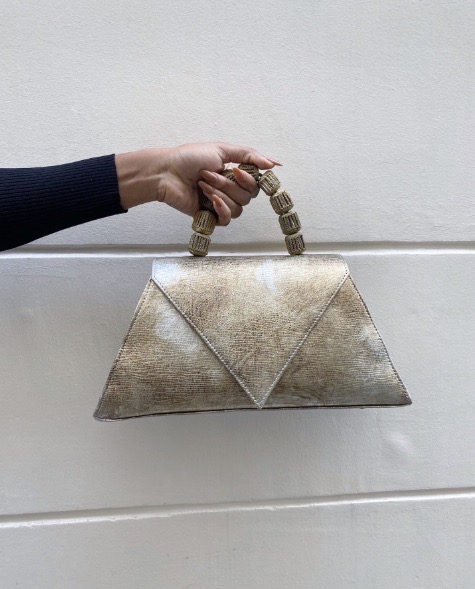
Le sac Ola Diourbel
In the age of social media, Africa’s fashion accessory sector is picking up. And while shoes, handbags and jewelry are arguably often in the shadow of the main garment industry, more and more players are entering the market. This is where we introduce Oba Style, a handbag brand founded by Faoziyath Koza in 2019, and offers wardrobe versatility.
Based in Paris, Koza is Franco-Gabonese of Beninese origin, overseeing leather sourcing in African countries like Senegal. Handmade, Oba handbags come in clean geometric designs, rendered in mostly neutrals and subdued hues.
These purses shape-shift in size patterns, and textures. From dramatic colorways and ankara sheaths to clasps made from crystal and bronze beads, this emerging handbag brand is on our radar this year
Story by Okayafrica
Read more fashion news here
In 2022, the European Commission unveiled a new strategy for sustainable textiles, aimed at coming up with more systemic solutions for improving the sustainability of the textile industry. The strategy also aligns with the European Green Deal, whose focus is to make growth sustainable, climate neutral, efficient regarding energy and resource, respectful of nature, and built around a clean and circular economy.
Given that the European Union (EU) is one of Africa’s top two export markets for textiles, its recent strategy on sustainable textiles has several implications for the African fashion industry. In this week’s article, we will explore the key takeaways from the EU strategy for textiles and the opportunities it presents for African fashion brands.
Background of the EU textile sector
The textiles sector is an important economic driver of the EU economy, with a turnover of EUR 162 billion, and employing over 1.5 million people in 160,000 companies. However, it also contributes significantly to environmental pollution with the fourth-highest impact on the environment after food, housing, and mobility. The EU has responded to the climate challenges posed by the sector, by adopting a new strategy for sustainable textiles whose vision is to ensure that;
“By 2030 textile products placed on the EU market are long-lived and recyclable, to a great extent made of recycled fibers, free of hazardous substances, and produced in respect of social rights and the environment.”
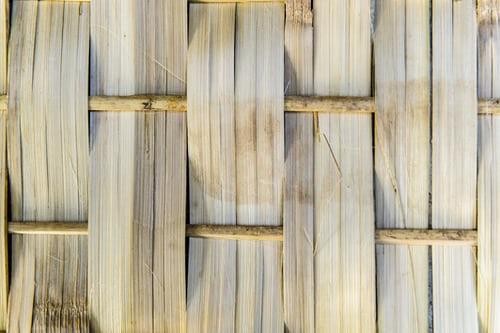 African Creativity: (PHOTO INTERNET )
African Creativity: (PHOTO INTERNET )
Key Actions under the Strategy
The vision will be accompanied by the following practical actions, intended to support the sustainable textiles drive.
Introducing mandatory eco-design requirements
The Commission will develop binding product-specific requirements to increase textiles’ performance in terms of durability, reusability, reparability, fiber-to-fiber recyclability, and mandatory recycled fiber content. Enactment of these requirements is aimed at minimizing and tracking the presence of substances of concern and reducing the adverse impacts on climate and the environment.
Banning the destruction of unsold or returned textiles
Large companies will be required to publicly disclose the number of products they discard and destroy, including textiles, and their further treatment in terms of preparing for reuse, recycling, and incineration or landfilling.
Tackling microplastic pollution
In addition to product design requirements, binding design requirements will be introduced under the Eco-design for Sustainable Products Regulation. These will target various stages of manufacturing, through a set of reduction and prevention measures, as well as the promotion of innovative sustainable materials.
Introducing information requirements and a Digital Product Passport
The Digital Product Passport for textiles will be based on mandatory information requirements on circularity and other key environmental aspects.
Green claims for truly sustainable textiles
General environmental claims, such as “green”, “eco-friendly”, and “good for the environment”, will be allowed only if underpinned by recognized excellence in environmental performance, or voluntary sustainability labels based on a third-party verification or established by public authorities.
Extended producer responsibility and boosting reuse and recycling of textile waste
It will propose harmonized EU extended producer responsibility rules for textiles with eco-modulation of fees, to create an economy for collection, sorting, reuse, preparation for reuse, and recycling. Producers and brands will also be incentivized to ensure that their products are designed in respect of circularity principles.
Opportunities for African Fashion brands
Develop recycling industries that convert fashion and textile waste into garments for commercial export markets
The new EU regulations on increasing textile performance mean the quality of textiles exported to Africa will be higher and better suited to recycling and repurposing. African fashion brands, therefore, have a chance to increase their revenue, by adding more value to second-hand clothing and exporting it.
Standardization of sustainable products
With a mandatory requirement for validating “green” claims if a brand sells its products in Europe, the African fashion industry can seize this opportunity to come up with universally recognized sustainability standards in fashion production. Not only will this help in guarding against greenwashing claims, but it will increase the brand value of African fashion brands that are genuinely sustainable, by distinguishing them from those that are built on unsubstantiated, sustainability claims.
Lobbying for governments to invest in infrastructure for greening conventional textile industries
Because Europe is a major market for Africa’s fashion industry, its proposed regulations for sustainable textiles are an opportunity for African fashion brands to come together and lobby the government to channel investment towards infrastructure for circular textile clusters. This will speed the greening of conventional textile industries by introducing economies of scale for small to medium enterprises (SMEs) in the African fashion industries. Additionally, it will facilitate improved access to export markets.
Investing in sustainable textiles
To better exploit market opportunities in the EU, African fashion brands have an opportunity to invest in sustainable textiles such as regenerative fibers which ultimately help them design waste out of their production processes. Efforts in this area are already underway, with companies such as Pine Kazi manufacturing shoes from pineapple waste.
Increase employment through the promotion of local artisans
The EU drive for sustainable textiles is an opportunity for African fashion brands to promote local artisans in Africa, who are already engaged in sustainable production methods such as hand-weaving, natural dyeing, and embroidery. It presents a chance for them to sell their products in markets where the sustainability component of their products is recognized and rewarded.
To learn more about the EU Strategy for Textiles, read their report here.
Source: FASHIONOMICS
LATEST NEWS
One week to go until Africa Sourcing and Fashion Week 2024: Designers, Exhibitors, and Speakers
01 November 2024 283 hitsOne week to go until Africa Sourcing and Fashion Week 2024: Designers, Exhibitors, and Speakers The countdown has begun for…
9 Years Milestone: Moses Turahirwa and His Moshions Brand Rwanda-Based
25 October 2024 434 hits9 Years Milestone: Moses Turahirwa and His Moshions Brand Rwanda-Based Over the past decade, Rwanda's fashion industry has emerged as…
What to Expect in Lagos Heineken Fashion Week 2024: Runways Kick off Today
23 October 2024 538 hitsWhat to Expect in Lagos Heineken Fashion Week 2024: Runways Kick Off Today The prestigious Heineken Lagos Fashion Week (LagosFW),…
Storytelling Meets High Fashion at The Kenya Fashion Story 2024
23 October 2024 626 hitsStorytelling Meets High Fashion at The Kenya Fashion Story 2024 The convergence of narrative and haute couture takes center stage…
Why Former Model Franco Kabano Is Backing the Stage Fashion Showcase's Founder
23 October 2024 537 hitsWhy Former Model Franco Kabano Is Backing the Stage Fashion Showcase's Founder In Rwanda's fashion industry, Franco Kabano and Sandrine…
The Stage Fashion Showcase 2024 Pre-Event Highlights Emerging and Established Talents: Main Event Set for November 1
20 October 2024 517 hitsThe Stage Fashion Showcase 2024 Pre-Event Highlights Emerging and Established Talents: Main Event Set for November 1 The fashion scene…
FASHION SHOPS
